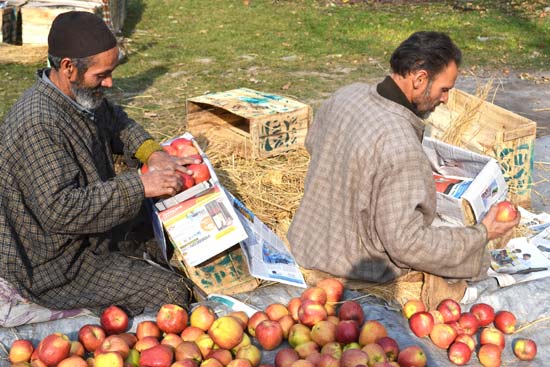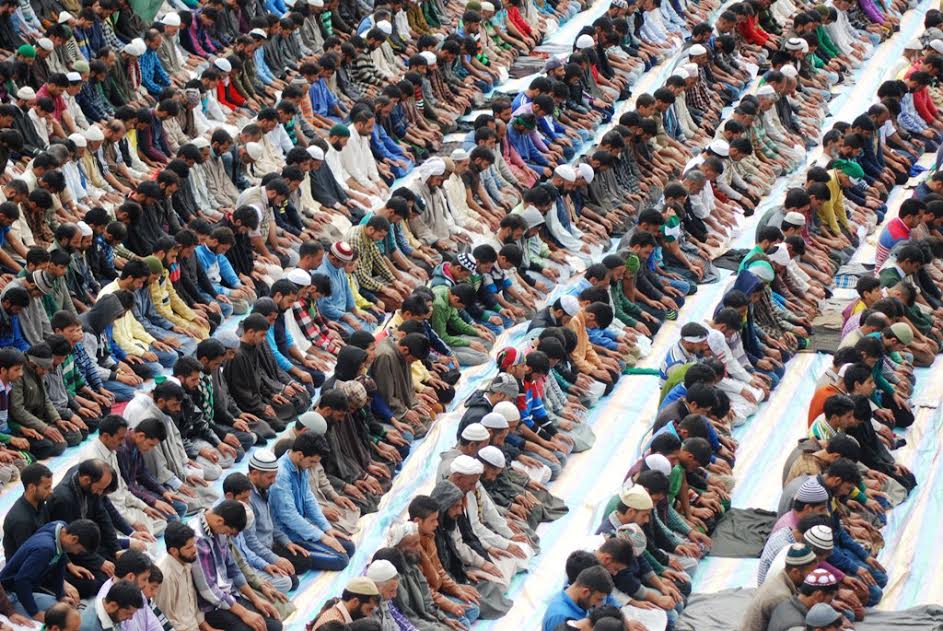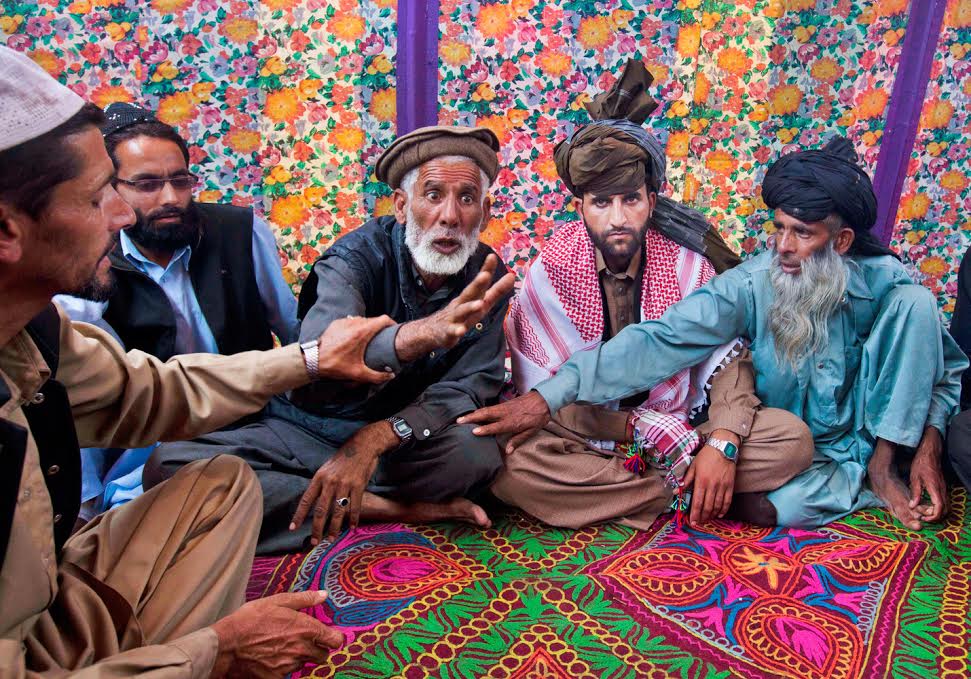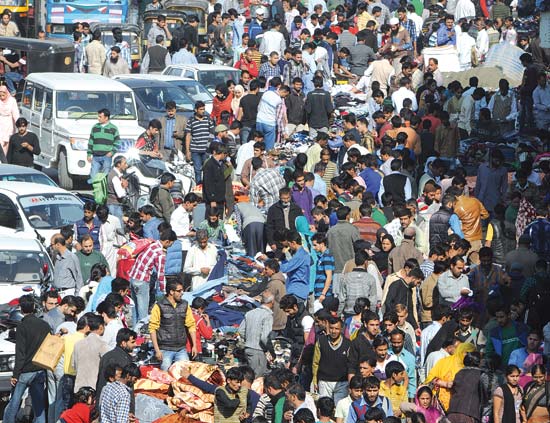Mature societies have one thing fundamental to their growth, strength, sanity and vibrancy: introspection. It works at multiple levels starting with family, housing settlements and eventually at the institutions. Faith apart, there are various platforms and diverse characters which ensure that the society sustains the basic human values.
For most of the recent history, authority remained vested with various people at different levels for different areas – economy with a despotic autocracy, faith with a clergy and education with the moneyed, it lacked a uniform growth of a society that predominantly was battling hunger and disease. Once a new system took over, characters changed swiftly but characteristics of the powerful may still take a long time to make any the shift. This is despite the fact that in certain cases institutions have replaced individuals.
Probably it might be for historical reasons that majority of the people in Kashmir are still attributing its collective failures to external forces and characters. This has remained at the core of the mess that Kashmir might be finding itself for one or the other reason.
Kashmir as a society is accused of exhibiting a dichotomous communication system: talking in two languages – one which exists within the normality of a society and the other for outsiders. Many think that this could be a survival tactic but it becomes a question mark once this duplicity becomes a standard political practice – people talking differently at home turf than in Delhi, for instance.
Politics being decisive, is always in sharp focus unlike other areas of activity. Take for instance, the trade, which is a fundamental activity of life.
For most of the purchasing, a common buyer is unsure of two things – the quality and the price. Though it is just a routine for hosiery, apparels, footwear, the crisis has gone to the medical sector. Most of the medicines cost barely half of the cost that a user pays because the markets in Kashmir are used to selling at the Maximum Retail Price and not the Minimum. Even after charging the highest, nobody is sure if they purchase the quality medicine. Nobody has forgotten what happened with the new born in the GB Panth Hospital last year where hundreds of kids died. It was later found that the hospital was the main window for marketing drugs which were fake. And those behind the game were the well-read respectable who did it for their cuts. And the latest on this front is the main accused in the mess were reinstated.
Profiteering and greed are the oldest maladies of trade. But to what extent it has gone is astonishing. We have barely come out of the days when the bulk buyers would purchase chilly from growers at a rate in which a trukh was six kilograms and not five. Even in Saffron, the costliest spice on earth, the tola for grower-seller is 12 tola and not 10. Despite the efforts that the state government has been traditionally making year after year about the per kilogram costs of the mutton, it is still being charged fancily and the quality is always compromised. Even when Kashmir is witnessing massive construction boom that is upward of Rs 5000 crore a year, nobody gets the best timber. Once you go to purchase it, the first question a timber seller asks is Kham or Pukhta? A square foot is never a square foot, it is many inches less than that because the seller’s saw machine cuts through the buyer’s part and he pays the costs as well!

Apple, the main mover of the peripheral economy, is the best instance that demonstrates how positive change gets better dividends. Traditionally, the black sheep were packaging sub-standard grades in better packaging and selling at better prices. It triggered sort of a doom as rates would never improve because the buyers were always unsure of the quality. Once the pressures within triggered a change, and institutional infrastructure was built locally, the buyer started arriving here and the rates appreciated. This is something different that this year we have massive crop but sub-standard quality is yet to have better price. But apple has started reversing the trend when it was a buyers produce.
Forget the sales and purchase. See how ruthless the human beings in Kashmir are while exercising their status as being at the top of the food chain. How we manage the poultry birds and the sheep, while importing and processing them for our dinner tables. Most of these animals and birds are hungry and thirsty at the time of their slaughter. Has anybody observed how we take a poultry bird home once we purchase it from the shelf? We take it home holding its legs!
It might be alright for any society but not the one that claims to be a Muslim society. There are specific and clear directions and a formal code of the process involved. You cannot slaughter an animal unless it is not taken away from its flock so that they do not watch it. In fact, a race in distant history of the human being was annihilated because they were cruel to the animals, the Koran has mentioned in length.
The speechless animals notwithstanding, see what has happened to the ecology which is so crucial to the existence of an idea called Kashmir – a water abundant valley with fascinating meadows and gardens. Is the water of Jhelum worth consumption? No. Why? It is because we have converted this river into a festering drain that washes our filth but not our sins. Entire sewage and sewerage of Islamabad, Bejbehara, Awantipore, Lethpora, Pampore, and Srinagar goes into the Jhelum. So does Baramulla and Sopore. Historically, we had been adding filth and dirt in such a huge volume and so consistently that most of the Europeans who have been visiting Kashmir for last 300 years have warned of epidemics. There were many epidemics with massive mortalities. The race survived but refuses to change, even now.
Dal Lake is the speaking instance of what can happen to a beautiful lake when biotic interventions cross the silver lining. And see how the systems work. They drain the same water, add chlorine to it and feed part of the old city!

But unclean water is not the only thing that is part of the human in-take in Srinagar. Almost every week, bits and pieces of information are added to the public domain about the chemicals which have been made part of the food by vested interests and business. These could be ripening agents sprinkled on bananas or colouring agents that get into the making of best wazwaan preparations in hotels and the family feasts. While the professionals are using it, the watchdog institutions are playing second fiddle by not acting swiftly. Some of these things are known carcinogenic agents. May be this might be one of the contributors to the epidemic like situation that Kashmir faces on cancer front.
This is not an essay aimed at denigrating the society of which we are a part. It is aimed at helping readers understand the requirement of societal introspection so that the flaws which are at the core of our being are identified and addressed. While we have enough to blame the external agencies for most of the contributions that negatively shaped the evolution of Kashmir society, there are lot many things that we must take the blame for.
Kashmir being predominantly Muslim has asserted its identity. In practicality, there has been a lot of difference between the script that the society believes in and the conduct it exhibits. Many times, the difference is being explained taking the culture and tradition angle.
While the blame usually goes to the Hindus for being a class-ridden society, what Kashmir is observing is a bit short of that. Equality of human beings is fundamental to the faith but when government wanted to rehabilitate a section of the under-privileged municipal workers in an old city locality, there were protests – the ‘shurfa’ did not want them there!

See what happens in case of issues that are key to faith and life. Take for instance, the Mehr which a Muslim is ordained to pay to his spouse at the time of marriage. A 1998 survey that had 4800 respondents across Kashmir suggested it was not paid in 19.77% of the marriages in various age groups. It was so insignificant that in 28.5% cases, the women said they are unsure if they were paid it or not!
This is fact that women in Kashmir have a better status as compared to their counterparts in various parts of the Indian plains or the Muslim societies elsewhere, but there are major issues where faith has taken the back seat. In 55.08% of the cases, the 1998 survey said, women were denied their due share in the inheritance. Since then, we might have changed. But how much?
These issues were the key to an intense debate in Kashmir Life newsroom in 2013 winter. We wanted to focus on the top negatives that Kashmir as a society exhibits, traditionally. The objective was to make it the anniversary thematic issue but owing to some developments in the fast changing socio-political front that the entire reportage was put in cold freeze. Many of the journalists who were part of the team that worked for this thematic issue are serving at other places.
For all these months, we were desperate to locate an occasion where we can provoke our readers to think over certain issues we think have emerged in key crisis. There can nothing be a better occasion other than the Eid that is being celebrated to remember how a great father decided to offer the sacrifice of his great son because it was a divine order. So here it is.
– Editor
















